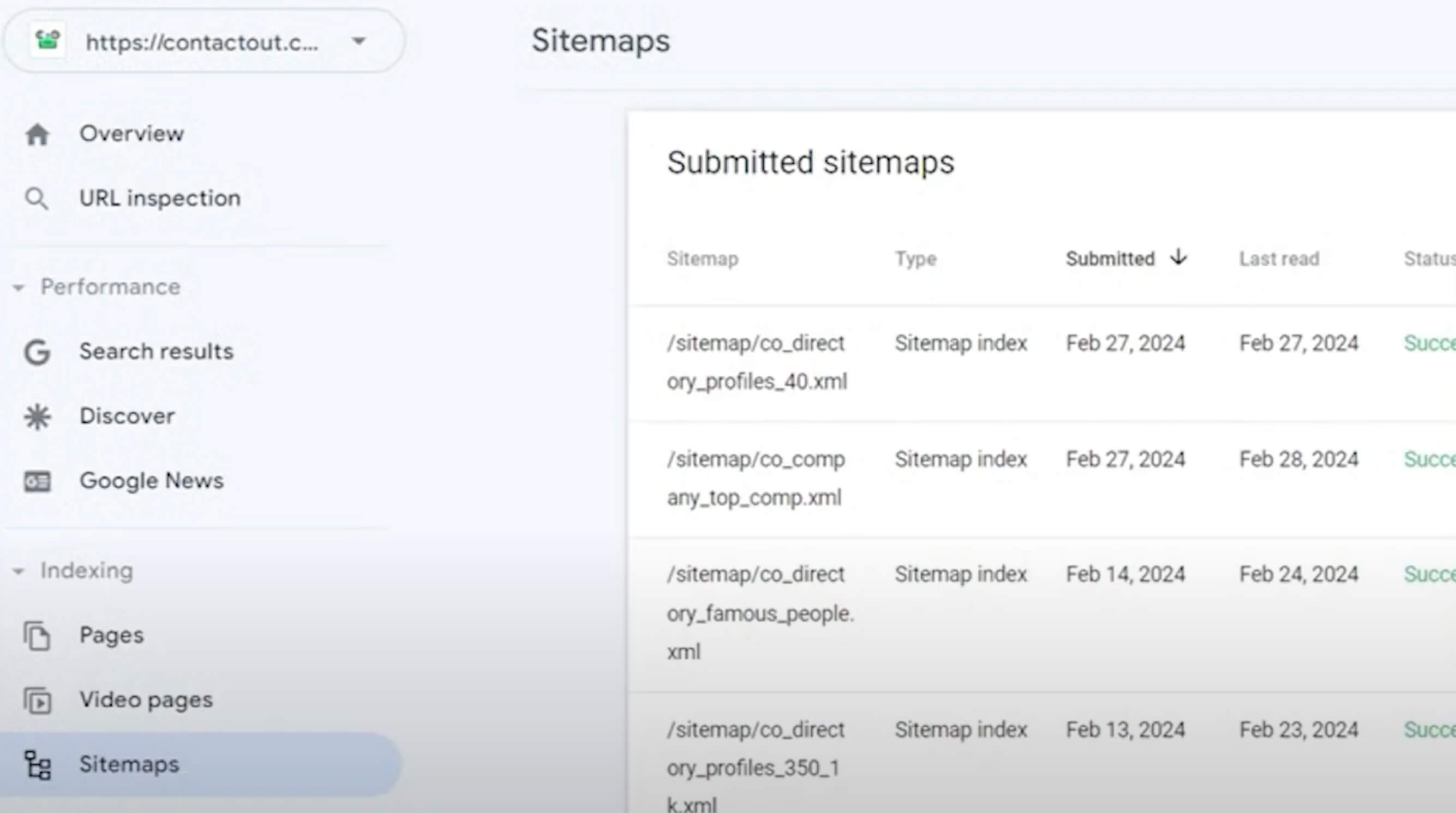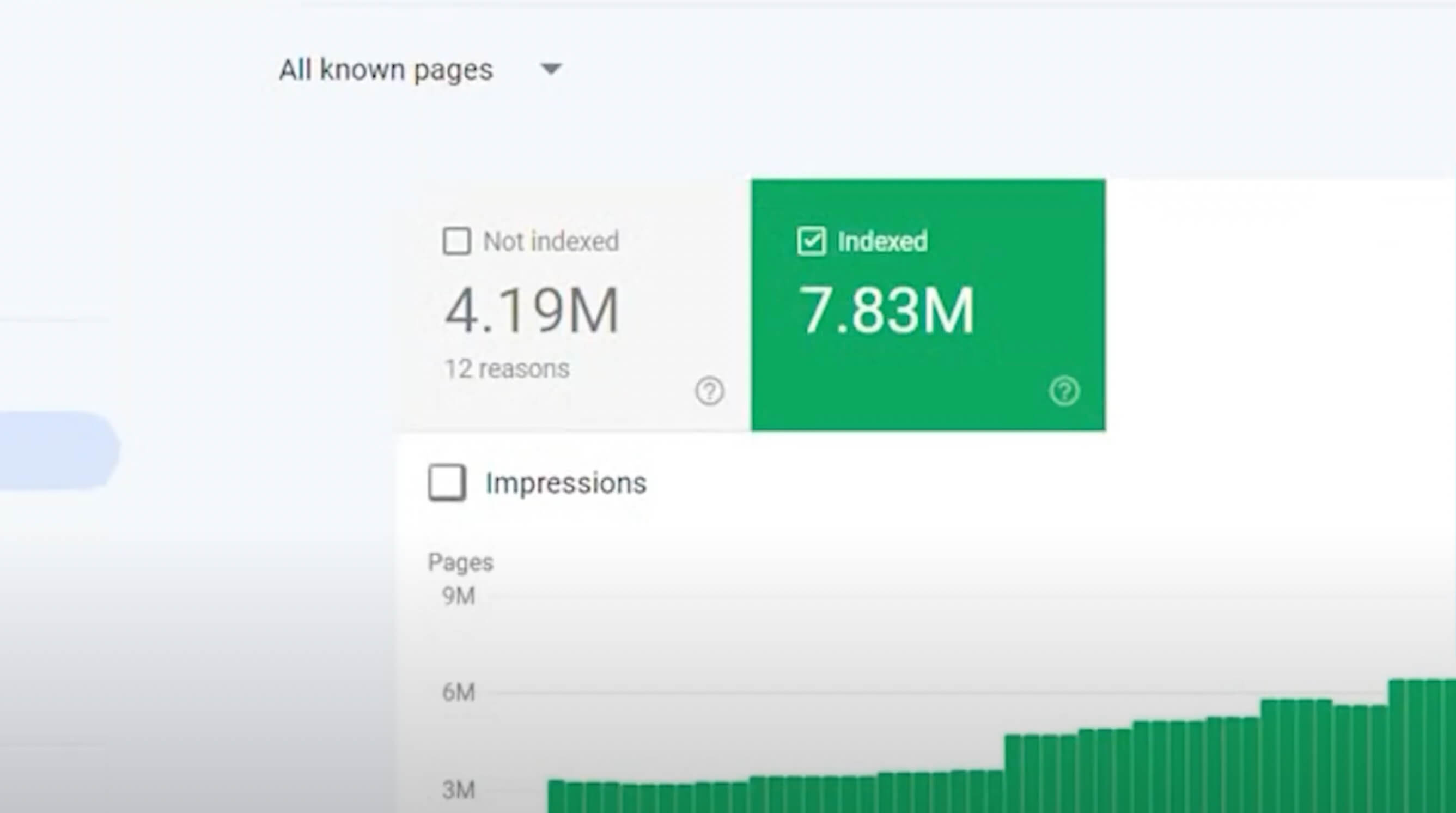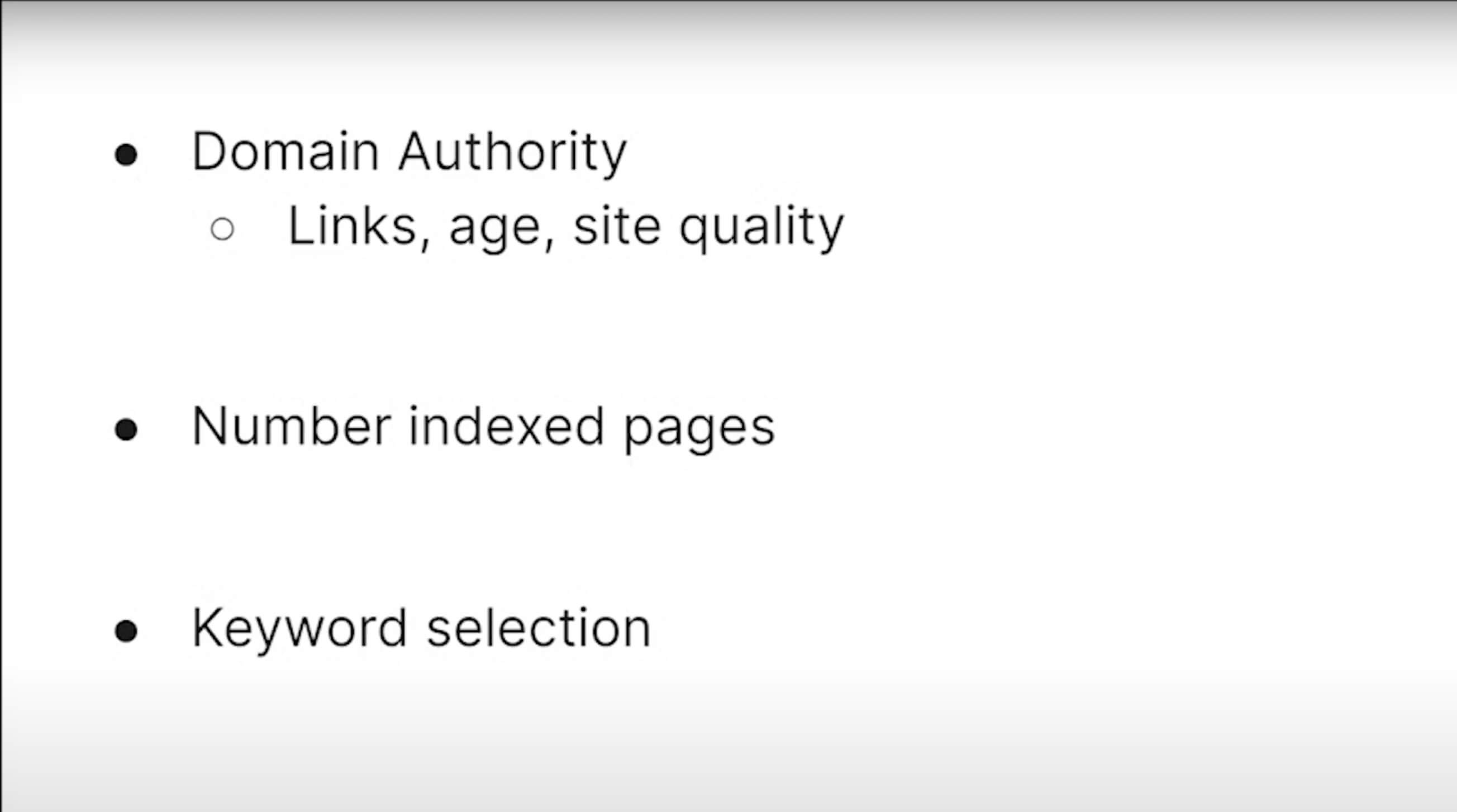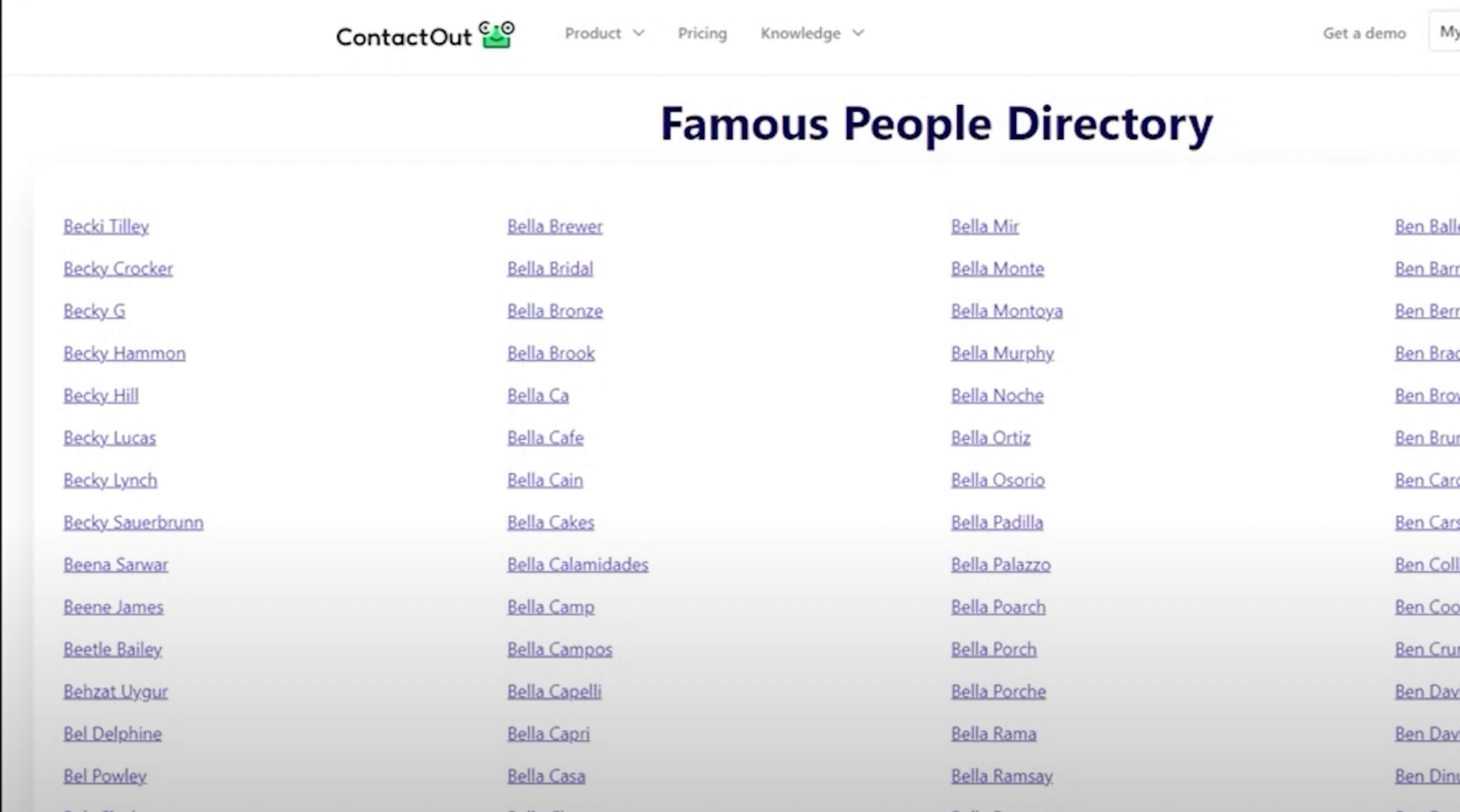Part 30: Indexing Content
Part 30: Indexing Content
Moving on to talking about indexing our content because if we don't index our pages, then we'll never get traffic, and we'll never rank in Google. Indexing is the first part.
For ContactOut, we submitted our pages — maybe half a million or a million at a time — to Google Search Console, and so far we have about 7.8 million pages indexed. That's growing every day.


The things that we found to impact your indexing rate are your domain authority, which is the age of your domain, and how high quality your site is. There's a lot of user stats that Google can get from Chrome about how users engage with your site, what the retention is, and the links to your site. This is probably the main factor that determines how authoritative it is.
Also, the number of pages you currently have indexed — we have quite a lot, nearly 8 million pages indexed. So, to get more pages indexed is not too easy for us. Generally, we find that when you have a lot of pages, it gets harder.
Keyword selection was a big one for us. Initially, we released maybe a million of these pages — Bill Gates email, person name email pages. What we found to help was when we selected names or keywords that had traffic volume.
For example, like the names of famous people or the names of popular businesses, or it might be like email patterns for mckinsey.com or management emails for McKinsey. When we selected the popular keywords that were getting a lot of traffic, our indexing rate was much better. Whereas if we just released random pages, most of those probably would never get searched for — like every name of every person on LinkedIn.

The other things we were doing for indexing were obviously creating a sitemap that links to every page because, you know, links are the primary driver of indexing.
So, from our homepage, it goes through this directory of people, then there's a link to every individual page. On the people pages, they link to each other

Moving on to talking about indexing our content because if we don't index our pages, then we'll never get traffic, and we'll never rank in Google. Indexing is the first part.
For ContactOut, we submitted our pages — maybe half a million or a million at a time — to Google Search Console, and so far we have about 7.8 million pages indexed. That's growing every day.


The things that we found to impact your indexing rate are your domain authority, which is the age of your domain, and how high quality your site is. There's a lot of user stats that Google can get from Chrome about how users engage with your site, what the retention is, and the links to your site. This is probably the main factor that determines how authoritative it is.
Also, the number of pages you currently have indexed — we have quite a lot, nearly 8 million pages indexed. So, to get more pages indexed is not too easy for us. Generally, we find that when you have a lot of pages, it gets harder.
Keyword selection was a big one for us. Initially, we released maybe a million of these pages — Bill Gates email, person name email pages. What we found to help was when we selected names or keywords that had traffic volume.
For example, like the names of famous people or the names of popular businesses, or it might be like email patterns for mckinsey.com or management emails for McKinsey. When we selected the popular keywords that were getting a lot of traffic, our indexing rate was much better. Whereas if we just released random pages, most of those probably would never get searched for — like every name of every person on LinkedIn.

The other things we were doing for indexing were obviously creating a sitemap that links to every page because, you know, links are the primary driver of indexing.
So, from our homepage, it goes through this directory of people, then there's a link to every individual page. On the people pages, they link to each other

